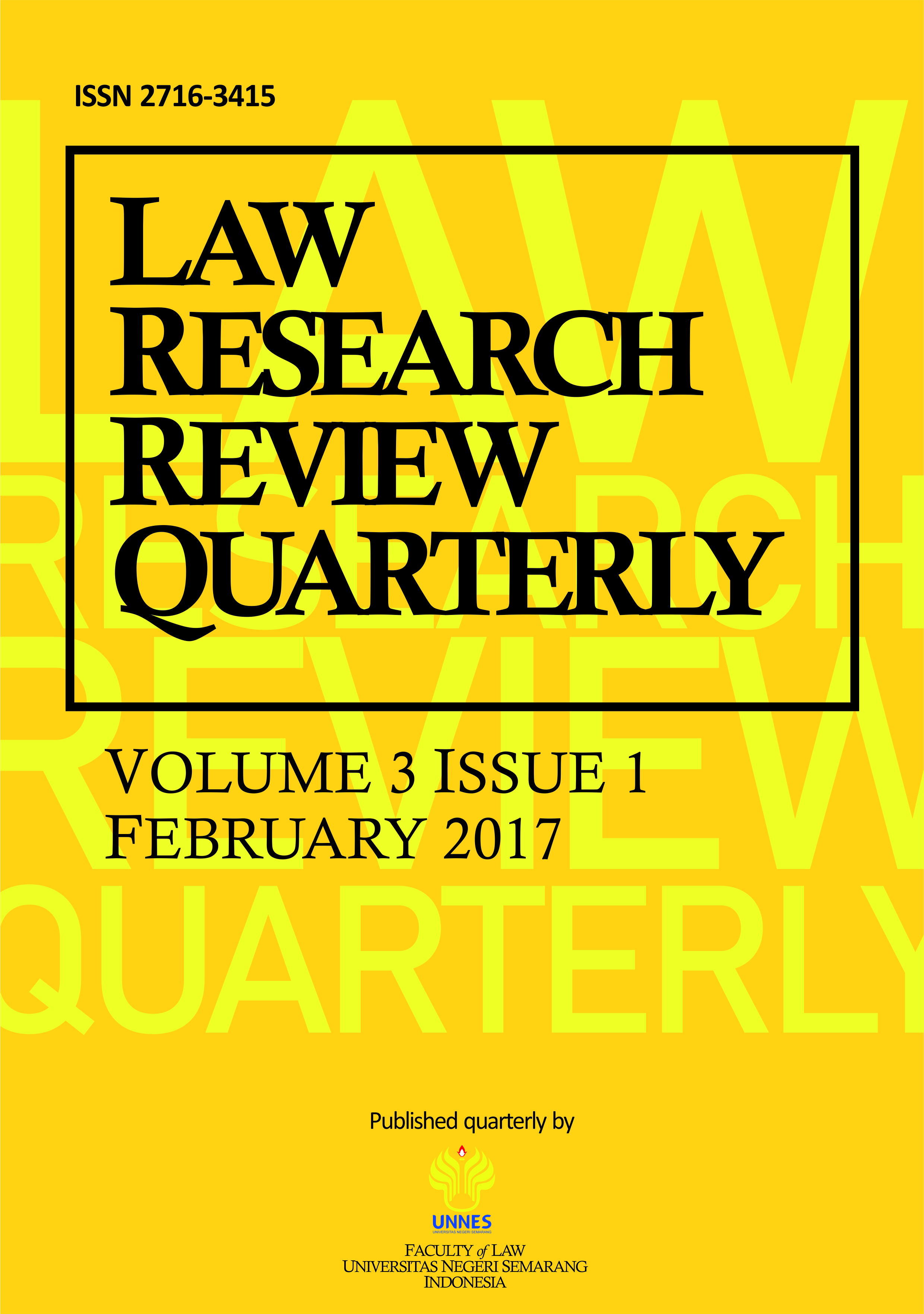Deter and Deny Strategies in Counter Terrorism Crime
Main Article Content
Abstract
ADULTS, movement and human traffic are not only confined around one country alone. In a very short time, a person can move from one country to another, even moving to several countries. Such conditions, of course, must be followed by a renewal of the concept of law, mainly related to criminal law. Crime also moves not only struggling in one area of ​​the country, but has crossed national borders. One of the crimes that goes beyond national borders is terrorism. Terrorism is one form of crime that has the potential to be strong across national borders (transnational crime) and even organized (transnational organized crime), because it networking with organized groups that reside in other countries. Therefore, in order to anticipate terrorism that has international networks, the concept of Cekal (Prevent-Tangkal) becomes a very telling instrument. Prevention is a temporary ban on people leaving Indonesia based on immigration reasons or other reasons determined by law. Meanwhile, deterrence is a prohibition against foreigners entering Indonesian territory based on immigration reasons
Article Details
All writings published in this journal are personal views of the authors and do not represent the views of this journal and the author's affiliated institutions. Author(s) are retain the copyrights of the Article. However, before publishing, it is required to obtain written confirmation from Author(s) in order to ensure the originality (Author Statement of Originality). The statement is to be signed by at least one of the authors who have obtained the assent of the co-author(s) where applicable.This work licensed under a Creative Commons Attribution-ShareAlike 4.0 International (CC BY-SA 4.0)
